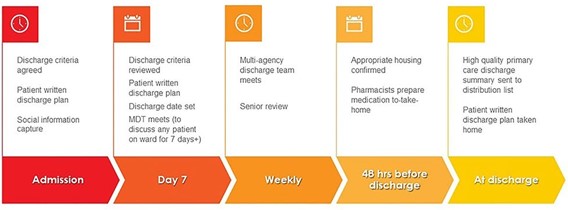Group therapy is encouraged but not mandatory. on an inpatient psychiatric unit, the unit manager's policy is that clients can make a choice about whether or not to attend group therapy.
Which ethical principle does the unit manager preserve?
Non-maleficence
Beneficence
Justice
Autonomy
The Correct Answer is D
Autonomy is the ethical principle that upholds an individual's right to self-determination and decision- making regarding their own life and treatment. In this case, the unit manager's policy of allowing clients to make their own choice about whether or not to attend group therapy preserves the principle of autonomy.
By not mandating group therapy, the unit manager respects the clients' right to make decisions about their own treatment and encourages them to participate in a way that feels comfortable and aligned with their own goals and values. This promotes a sense of empowerment and self-efficacy in clients, which is important for their overall recovery and well-being.
While beneficence, non-maleficence, and justice are also important ethical principles in healthcare, they are not directly applicable to this particular situation.
Nursing Test Bank
Naxlex Comprehensive Predictor Exams
Related Questions
Correct Answer is C
Explanation
Buspirone and benzodiazepines are both medications used to treat anxiety disorders, but they work in different ways. Benzodiazepines like Xanax work by enhancing the effects of a neurotransmitter called GABA, which can produce a sense of relaxation and calmness. However, benzodiazepines can also cause dependence, tolerance, and withdrawal symptoms when used for a prolonged period.
On the other hand, buspirone works by binding to serotonin and dopamine receptors in the brain, which can reduce anxiety. Unlike benzodiazepines, buspirone does not cause dependence, tolerance, or withdrawal symptoms, which makes it a safer option for long-term treatment of anxiety disorders.
Therefore, the healthcare provider may have prescribed buspirone instead of alprazolam because it is a safer alternative for long-term use, especially for individuals who have a history of substance abuse or dependence. The nurse should explain the benefits of buspirone and address any concerns the client may have about the medication.

Correct Answer is A
Explanation
Chronic anxiety is a persistent feeling of unease, worry, or fear that can interfere with daily life. To manage chronic anxiety, the client needs to identify anxiety-producing situations that trigger their symptoms. This can help the client avoid or cope better with these situations. It is important to note that it is not always possible to eliminate stress and anxiety from daily life, so it is better to focus on managing it effectively.
Trying to repress feelings of anxiety is not a helpful strategy and can make the client's symptoms worse in the long run. Repressing emotions can lead to feelings of frustration, irritability, and even physical symptoms such as headaches or muscle tension.
Contacting the crisis counselor once a week may be helpful for some clients, but it is not a standard recommendation for all clients with chronic anxiety. The discharge plan should include personalized recommendations that are tailored to the client's specific needs and circumstances.

Whether you are a student looking to ace your exams or a practicing nurse seeking to enhance your expertise , our nursing education contents will empower you with the confidence and competence to make a difference in the lives of patients and become a respected leader in the healthcare field.
Visit Naxlex, invest in your future and unlock endless possibilities with our unparalleled nursing education contents today
Report Wrong Answer on the Current Question
Do you disagree with the answer? If yes, what is your expected answer? Explain.
Kindly be descriptive with the issue you are facing.
